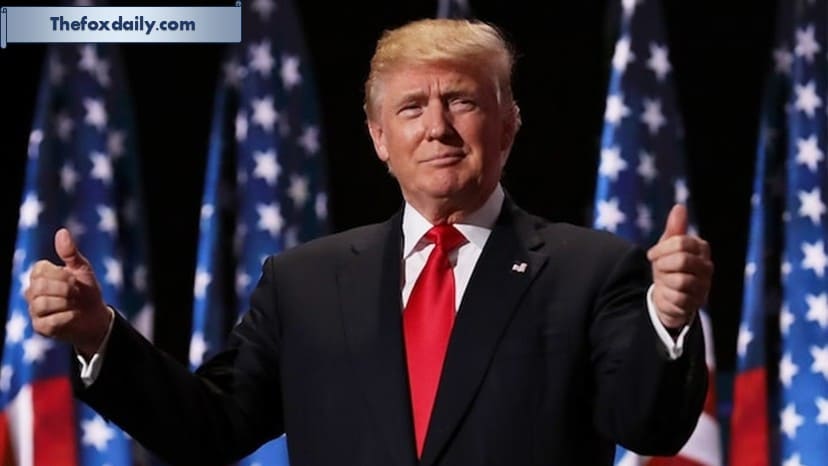
The Trump administration has introduced major changes to the H-1B visa program, sparking debate among employers, international students, and skilled professionals. Two big announcements have drawn attention this week: a massive fee hike of $100,000 for new H-1B petitions and a complete overhaul of the H-1B lottery system, shifting the advantage toward higher-paid jobs instead of entry-level positions.
Officials argue that by restricting the use of H-1B visas for lower-paying jobs and prioritizing foreign workers in high-skilled and high-salary roles, the new rules aim to “protect American workers.” However, the changes could significantly affect the future of international professionals and students who wish to live and work in the United States.
What are the key changes in the H-1B visa selection process?
Currently, when demand for H-1B visas exceeds the annual cap of 85,000, the selection is conducted through a completely random lottery. Under the new proposal, the Department of Homeland Security (DHS) plans to introduce a wage-based, weighted lottery system, giving higher-paying job offers better odds of selection compared to entry-level salaries.
In practice, this means that applicants offered higher wages will have a greater chance of being picked, while those with entry-level salaries will see reduced odds. DHS stated that the goal is to “move away from a purely random process” and instead reward employers offering better pay. Texas-based immigration lawyer Chand Parvathaneni told The indian express: “At this point, it is just a draft and not the final rule. Once finalized, it may still face challenges in court.”
How will the wage-based lottery system work?
Each H-1B applicant will be placed into a wage level tier, ranging from Level 1 (entry-level pay) to Level 4 (expert-level pay). These levels are based on data from the U.S. Department of Labor’s Occupational employment and Wage Statistics (OEWS). Employers filing petitions must submit details such as the Standard Occupational Classification (SOC) code, job location, and wage level for the offered position.
Under the proposed H-1B rule, USCIS will assign lottery entries as follows:
- Level 4 (highest wage): Name entered four times
- Level 3: Name entered three times
- Level 2: Name entered twice
- Level 1 (lowest wage): Name entered once
In simple terms, an entry-level applicant will only have one chance of selection, while an applicant with a Level 4 wage will have four. This system is designed to favor high-income foreign workers while still leaving some opportunities for lower-wage applicants.
How will multiple filings be treated?
Even if more than one employer files for the same applicant, that individual can only be selected once. Importantly, if one employer offers a Level 4 wage and another offers a Level 1 wage, the applicant will be treated at the lower level. This safeguard is meant to prevent employers and workers from “gaming the system” by inflating salaries just to improve selection chances.
Will entry-level workers face disadvantages?
Yes. The proposed rule is expected to make it harder for entry-level H-1B applicants, such as recent graduates, to secure visas. Under the current random system, all applicants — from junior professionals to senior experts — have an equal shot. The wage-based lottery will intentionally reduce the chances of lower-paid applicants, shifting the balance toward highly paid professionals.
Has a wage-based system been tried before?
This is not the first attempt at introducing wage levels in H-1B selection. In late 2020, during Trump’s presidency, DHS finalized a similar wage-ranking rule. However, it never took effect because the Biden administration blocked it before the March 2021 lottery. Later, in September 2021, a federal court struck it down, and it was officially withdrawn.
When will the H-1B changes take effect?
Currently, the rule is still in the proposed stage. DHS released the draft on September 24, 2025, and opened a 30-day public comment period. After reviewing public feedback, the government will complete the regulatory process, which may take several months.
The administration’s goal is to have the wage-based lottery system ready for the March 2026 H-1B lottery, which applies to the FY2027 cap. However, immigration lawyers caution that lawsuits are likely. Critics argue that the Immigration and Nationality Act requires visas to be issued in the order petitions are received, not through a wage-based selection. Some believe that Congress, not DHS, must approve such a change.
“We anticipate lawsuits. Legal experts believe the changes to the lottery system may need congressional approval rather than rulemaking alone. There are strong arguments on both sides, and the courts may ultimately decide whether this regulation is valid under the Administrative Procedure Act,” Parvathaneni explained.
Conclusion: What does this mean for the future of H-1B visas?
The proposed Trump H-1B rule represents a significant shift in U.S. immigration policy, favoring high-paying jobs and skilled workers while reducing opportunities for entry-level professionals. If implemented, the system will reshape how international talent enters the U.S. workforce. Still, with legal challenges looming, it remains uncertain whether the wage-based H-1B lottery will survive long enough to take effect in the FY2027 cycle.
For breaking news and live news updates, like us on Facebook or follow us on Twitter and Instagram. Read more on Latest India on thefoxdaily.com.





COMMENTS 0